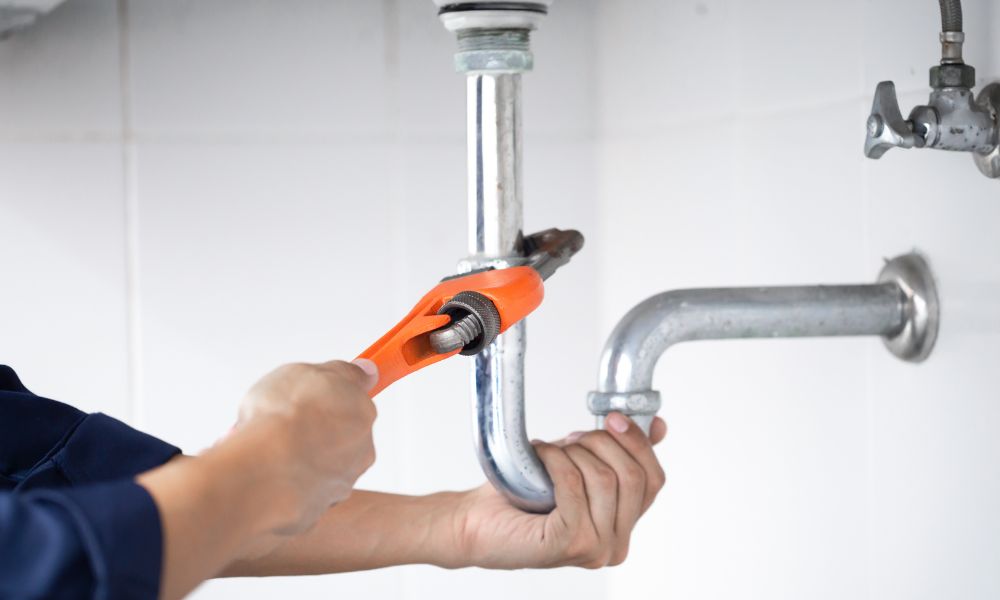Your home’s plumbing system is one of the most essential components of your house, responsible for delivering clean water and removing wastewater efficiently. Understanding how your plumbing system works can help you prevent problems, address minor issues, and even save on costly repairs. For beginners, getting a grasp on the basics can make a world of difference. This guide will walk you through the key aspects of a plumbing system, ensuring that you have the knowledge needed to maintain a healthy and functional home.
-
The Basic Components of a Plumbing System
A typical plumbing system has two main subsystems: one that brings fresh water into the home, and another that removes wastewater.
Water Supply System
The water supply system brings fresh water into your home, usually from a municipal water source. Water is distributed to faucets, appliances, and other fixtures through a network of pipes. These pipes are typically made from materials like copper, PEX (cross-linked polyethylene), or PVC (polyvinyl chloride).
Drain-Waste-Vent (DWV) System
The DWV system is responsible for removing wastewater and venting sewer gases. It consists of drainpipes that carry wastewater away from sinks, toilets, and showers, and vent pipes that allow sewer gases to escape outside your home. The system relies on gravity to move waste, so proper slope and pipe placement are crucial.
Fixtures and Appliances
The plumbing system also includes various fixtures and appliances such as sinks, toilets, bathtubs, dishwashers, and washing machines. These are all connected to the water supply and drain systems, allowing for the use of water and the disposal of waste.
-
How Water Pressure Works

Water pressure is what drives water through your pipes and to your fixtures. It’s essential to maintain proper water pressure to ensure everything in your home operates smoothly.
High and Low Water Pressure
If the water pressure is too high, it can cause strain on your pipes and fixtures, leading to leaks and potential damage. Conversely, if the water pressure is too low, you may experience weak water flow from faucets and appliances. A pressure regulator can help maintain optimal water pressure in your system.
Checking Water Pressure
Homeowners can easily check their water pressure using a water pressure gauge, available at most hardware stores. Ideal water pressure for a home ranges between 40 to 60 psi (pounds per square inch).
-
Common Plumbing Problems and How to Address Them
Understanding common plumbing issues can help you take action before they become major problems.
Leaks
Leaks are one of the most frequent plumbing problems and can occur in faucets, pipes, or appliances. While small leaks might seem like a minor issue, they can lead to water damage, mold growth, and increased water bills. Regularly inspecting your plumbing for signs of leaks, such as water stains or damp areas, can help prevent more significant damage.
Clogged Drains
Clogged drains are another common problem, often caused by the buildup of hair, soap, grease, and debris. While a plunger or drain snake can handle minor clogs, persistent blockages may require professional assistance. To prevent clogs, avoid disposing of grease, coffee grounds, and large food particles down the drain.
Running Toilets
A running toilet can waste hundreds of gallons of water per day. This issue is usually caused by a faulty flapper or fill valve. Replacing these parts is a simple and inexpensive fix that most homeowners can handle themselves.
-
Maintaining Your Plumbing System
Proper maintenance is key to ensuring the longevity of your plumbing system. Regularly checking your pipes, drains, and fixtures can help prevent expensive repairs in the future.
Insulating Pipes
In colder climates, insulating your pipes can prevent them from freezing and bursting during the winter months. Pipe insulation is a relatively easy DIY project and can save you from costly water damage.
Draining Your Water Heater
Sediment buildup in your water heater can reduce its efficiency and lifespan. Draining your water heater annually helps to remove sediment and maintain optimal performance.
Clearing Drains
Regularly clearing your drains of debris and using drain guards can prevent clogs and keep your plumbing system running smoothly.
-
When to Call a Professional
While many plumbing tasks can be handled by homeowners, some issues require the expertise of a professional plumber. If you experience significant water damage, persistent clogs, or problems with your water pressure, it’s best to seek professional help. Additionally, any work involving gas lines or complex repairs should be left to certified professionals to ensure safety and compliance with local regulations.

